Liverpool 2-1 West Ham: Virgil van Dijk Can Do Whatever He Wants
Virgil van Dijk tried to prove he was merely human in the final five minutes of Liverpool's win against West Ham. Then he spoiled it with a winner.
Liverpool moved to within six points of the Premier League title by beating West Ham 2-1 at Anfield on Sunday. It proved harder than any it had any right to be, especially once the home side went in at the break a goal to the good.
The Reds simply don’t lose when leading 1-0 at half time. It last occurred in the league when Roy Hodgson was their manager. Thankfully there are Liverpool fans young enough now who won’t remember those dark, dreadful days.
Even drawing when 1-0 up after 45 minutes is relatively rare. Jürgen Klopp had one instance in a full stadium across his final six campaigns. There was nearly a first example for Arne Slot thanks to Virgil van Dijk, then there wasn’t thanks to Virgil van Dijk.
One interesting quirk is that Klopp had a pair of 2-1 victories in the league at Anfield in which his men led 1-0 at the interval. In both instances - against Tottenham in 2018/29, then Leicester six months later - a stoppage time winner was required. This match came close to needing that too.
Van Dijk and Mohamed Salah spoke to Sky Sports after the match, with the subject of their contracts inevitably rising. The forward mentioned that he hoped the Dutchman signed a new deal but added “he can do whatever he wants.”
The line struck a chord in a different way, with the climax of this match proving that point. Liverpool fans would still love Virgil if he chose to walk away from the club at the end of the season. He can do whatever he wants. They love him even though his late mistake against the Hammers almost cost the Reds two points. He can do whatever he wants. And if Liverpool need a late winner, their captain can decide to get it for them. He can do whatever he wants.
Virgil marked his Reds debut with a late winner at the Kop end from a corner, and, while it looks nailed on that he will stay, it’s not impossible that this was his final goal for the club in identical fashion. The very best deliver in the biggest occasions.
Liverpool seem to save their set piece goals for vital moments this season too. Only Fulham, with four, have scored fewer in thePremier League than the Reds (five), despite Slot frequently preaching the importance of set plays.
Consider the value of the goals that have happened though. You could argue the first, at Wolves, wasn’t especially important. Since then, Liverpool’s set play goals in the league before this weekend came at Arsenal, Nottingham Forest and Manchester City. The league table might show them to be the three hardest away matches the Reds have faced, depending on the final standings.
A point at the Emirates kept the Gunners four behind Liverpool, a margin which seems quaint now. Avoiding defeat at the City Ground stretched a six-point lead to seven. Many people expected Arsenal to go five points behind with a game in hand ahead of the weekend in which the Reds went to the Etihad; by full time against City, the margin was 11 points.
In Europe, Milan, Real Madrid and Lille felt the force of Liverpool’s erratic set piece wrath. But how did the Reds come to need to unleash it against West Ham?
Visiting sides at Anfield have a playbook older than even James Milner. Try to hang in the game until, say, 70 minutes have passed before opening up to see what you can get. This match looked like it might have turned into that from West Ham, only they sprang into life far earlier.
They had little spring the first half, which was largely Red. Liverpool dominated possession to the tune of 68.2 per cent, completing 89.2 per cent of their passes. He who can do whatever he wants didn’t spill a drop, finding a teammate with 49/49 attempted passes.
Neither van Dijk nor his team fell too far from those marks in the opening quarter-hour of the second half. But then the substitutions began, which - in a thankfully rare occurrence for Slot - didn’t work out.
While there were only eight minutes between the first double change and the second, Liverpool were out-passed 37-17 in that period. From that point to West Ham’s goal wasn’t quite so bad, though the Reds only had 41.2 possession, completing just 72.2 per cent of their passes.
A comparison of their pass maps for the two halves shows what you would expect to see from one side playing another, with a possession maestro up against a long-ball side.
The one positive of Andy Robertson’s own goal was that it lit the Liverpool touchpaper on the pitch, up into the stands. It led to a quick-fire goal, an element of play which has been reviewed in this newsletter several times already this season.
Roughly 90 seconds of ball-in-play time separated the equaliser and the winner. Remarkably, Liverpool had more shots in that period (five) than they did in the 68 minutes that separated the first two goals of the contest.
After the Reds lost the ball from the resuming kick off, the visitors tried to retain possession at the back. A double Dutch press from Cody Gakpo and Ryan Gravenberch earned a throw-in.
In the sequence following the throw, Liverpool completed two passes into the box, just one fewer than they’d mustered in the half to that point. It led to Luis Díaz having a shot which was deflected for a corner.
This was not the corner, but it led to shots for van Dijk and Jarell Quansah. As West Ham looked to clear, Mohammed Kudus was pressed by Wataru Endō and Dominik Szoboszlai leading to perhaps the key moment. Alexis Mac Allister won the ball in a South American tussle with Lucas Paquetá, who collapsed in a heap. Play on.
For once, an assistant referee not giving a free-kick in that corner of Anfield paid off for Liverpool. Mac Allister’s subsequent shot led to the decisive set play, which shaved two points off the Reds’ magic number.
Every outfield player made a contribution to this match-saving whirlwind of activity, either on the ball or through pressing a Hammer into a mistake. It was van Dijk who was the ultimate hero though. He can do whatever he wants.

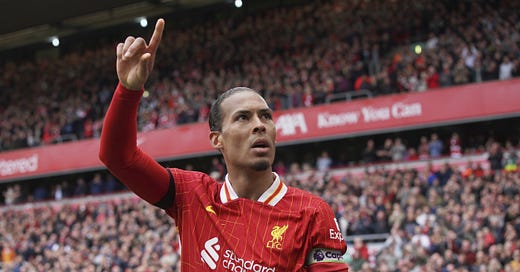



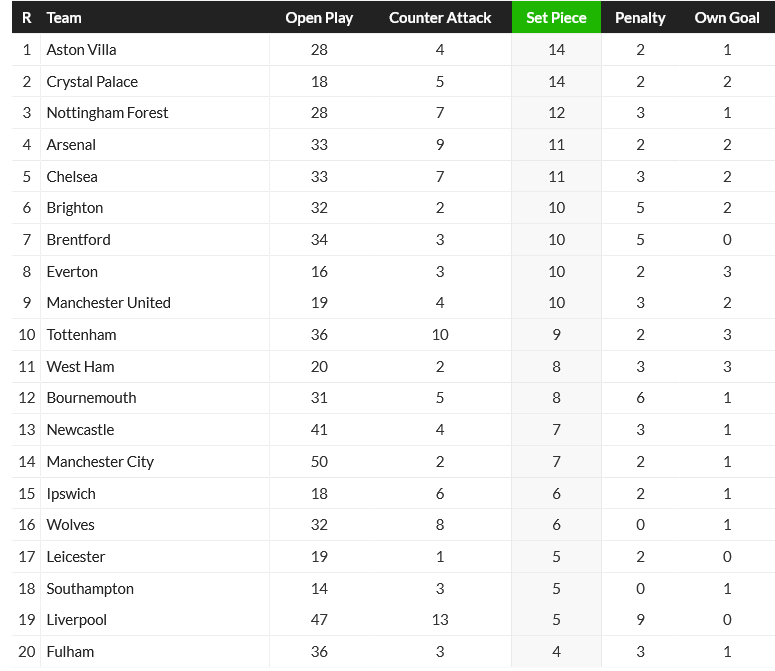
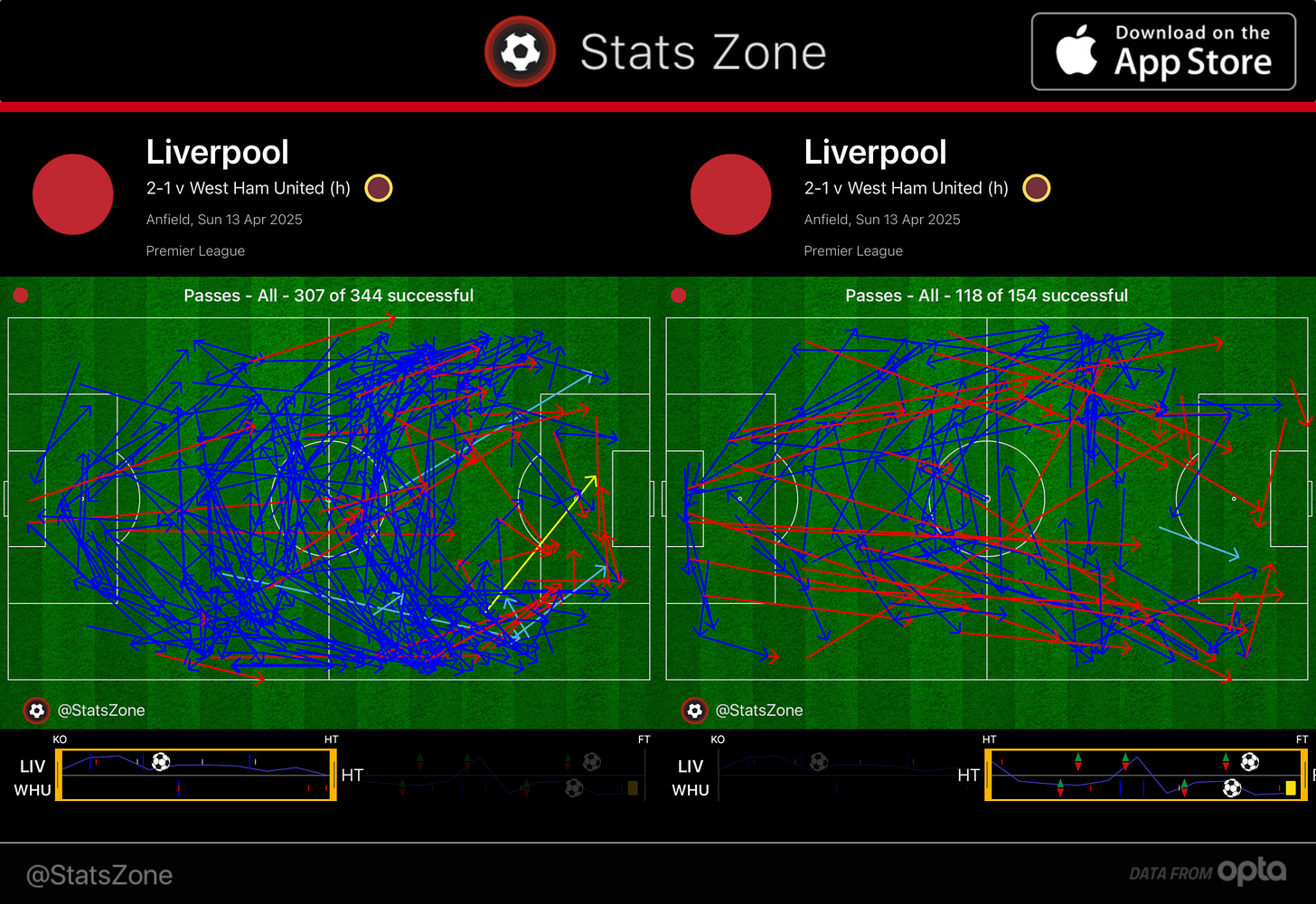
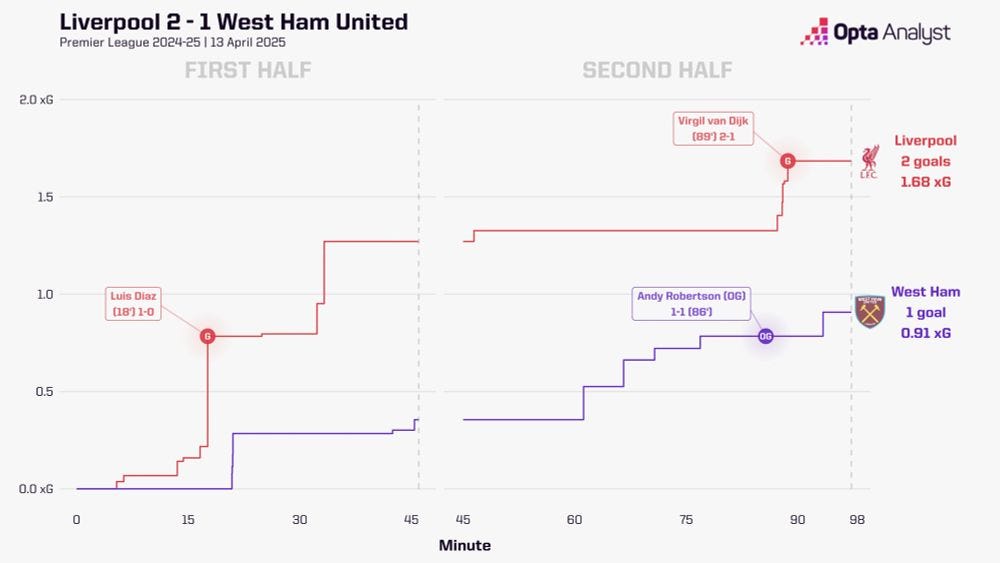
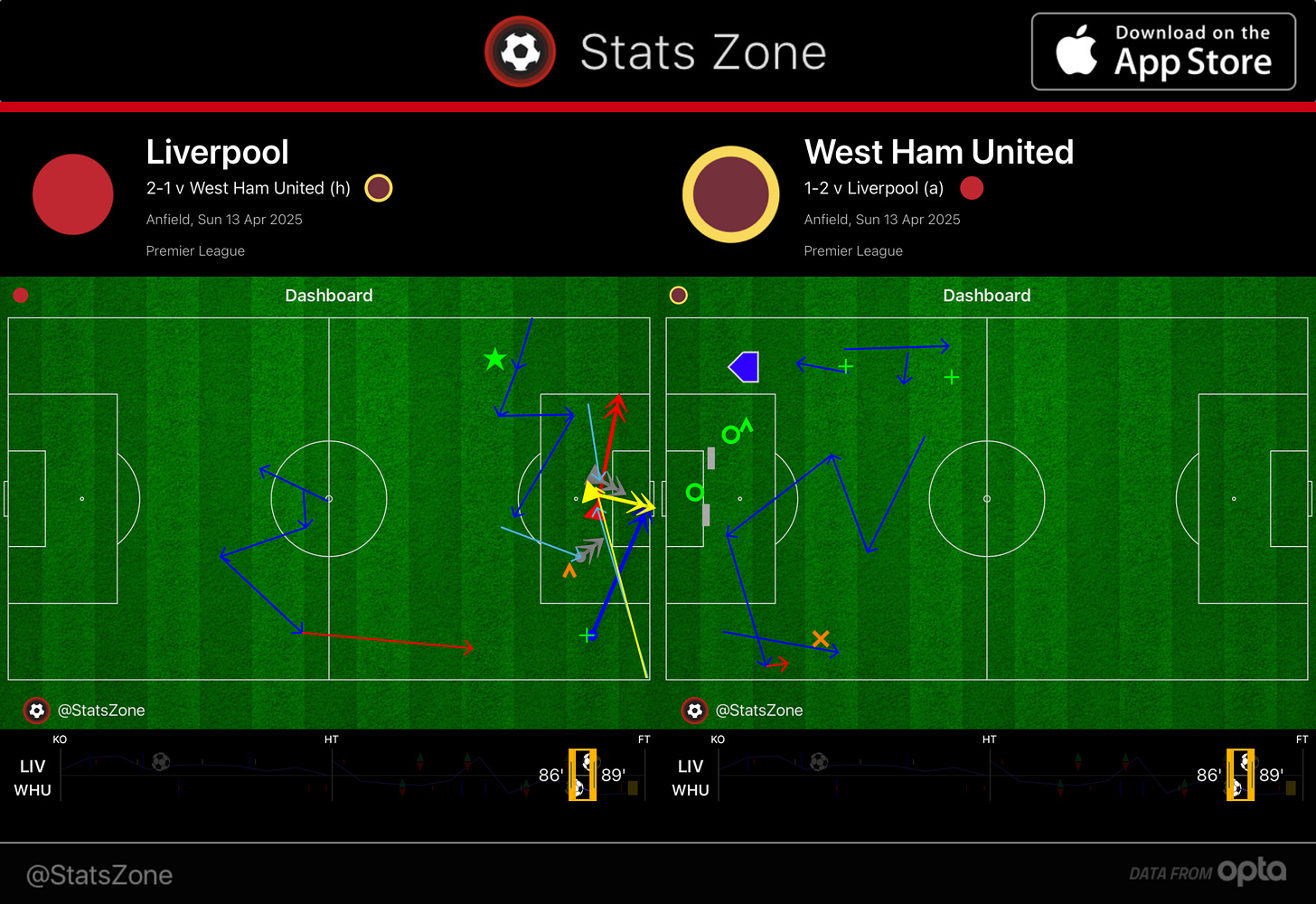

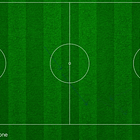

Such a strange game. A largely passive second half from Liverpool before they exploded when needs be.
Thanks Beez.
Glad you pointed out the Mac Allister / Paquetá tussle that led to the decisive corner.
My initial reaction was that it was a foul, and I was surprised Madley didn't call it as such.
On subsequent viewing it was clear it wasn't and credit to the ref for not falling for it this time.
If Paquetá had been more honest and stayed on his feet, the result may have been different.
Perhaps he'll learn for next time.